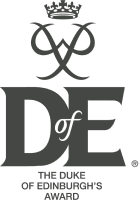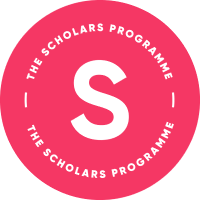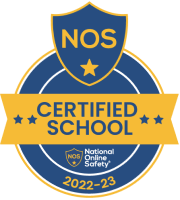British Values, SMSC and PSHE in the Arts
British Values, SMSC and PSHE are at the core of Queen Elizabeth High School’s curriculum and are an underlying force, driving the standards of expectation in all subjects. In the Arts and Physical Education faculty we underpin our content with these values to ensure we help support the development of responsible, community aware, tolerant & good citizens.
Social:
Through the use of sports captains in PE, performing keyboard skills in Music and through analysing sculptures in Art, the faculty continuously provides opportunities for social skills to be developed.
Moral:
Building trust through blindfolded activities in Drama, tackling drugs issues in sports through PE and encouraging self-discipline when creating a piece of GCSE art work are all moral issues that appear within the faculty.
Spiritual:
Studying the importance of Indonesian Gamelan music, finding spirituality in a piece of Dance choreography as well as exploring Picasso and the Expressionist era in Art are ways in which the faculty develops spirituality.
Cultural:
From the art of African drumming as a form of communication, exploring the sporting strengths of different nations across the world and gaining an insight into the reverspective art work of Patrick Hughes, exploring culture is one of the faculty’s real strengths.
Democracy:
Our faculty allows the students to express themselves democratically and artistically, through voicing their opinion on performances, analysing their own work, sharing their artistic tastes with the class as well as taking part in voting and nominating sports captains.
Rule of Law:
The rule of law plays a huge part in the Arts and Physical Education faculty. Without laws, subjects within the faculty could not happen. For example, the very nature of Music is governed by mathematical law, and this is taught to help students understand harmony, not only within their music, but within society. Building confidence and respecting one another is a key feature in helping to build sportsmanship by following rules when taking part in sports fixtures. Applauding the opposition and shaking hands at the end of a match promote such respect. The rule of law also plays an important role in an artist’s ethical understanding of copyright.
Individual Liberty:
Students are encouraged to be independent and creative within the faculty. Self-expression is a key factor in the successful creative-architype, and is often lost through the course of standard education. Students are given differentiated work within the faculty and they can choose which task best fits their needs. For example, in art, a student may choose to use a drawing template to support them compared to an individual who would be more willing to improvise without such guidance. In music, a student will have the option to use sheet music with letters on to help guide them around the keyboard compared to someone who is at a more advanced level to play a more complex piece of music. In PE, students are given the option to choose which activities they would like to take part in.
We encourage individuality and differences. Freeing up the strict guidelines of what is a good performance of a song, piece of art or sports performance and concentrating on personal voice and interpretation helps to encourage those aiming to achieve higher grades in Key Stage 4.
Tolerance:
People can feel quite vulnerable and exposed when sharing something as personal as a performance, a piece of art work or asked to perform a certain sport. Therefore we have developed a safe environment which builds confidence in the students allowing them to perform. Performances are a great opportunity to experience tolerance. Tolerance of others; tolerance of genres; tolerance of patience and tolerance of criticism. Through these periods of peer evaluation and self-assessment, the students can learn that the vastness of diversity in the world can lead to beautiful outcomes and improve not only their outlook, but their perspectives and lives.






